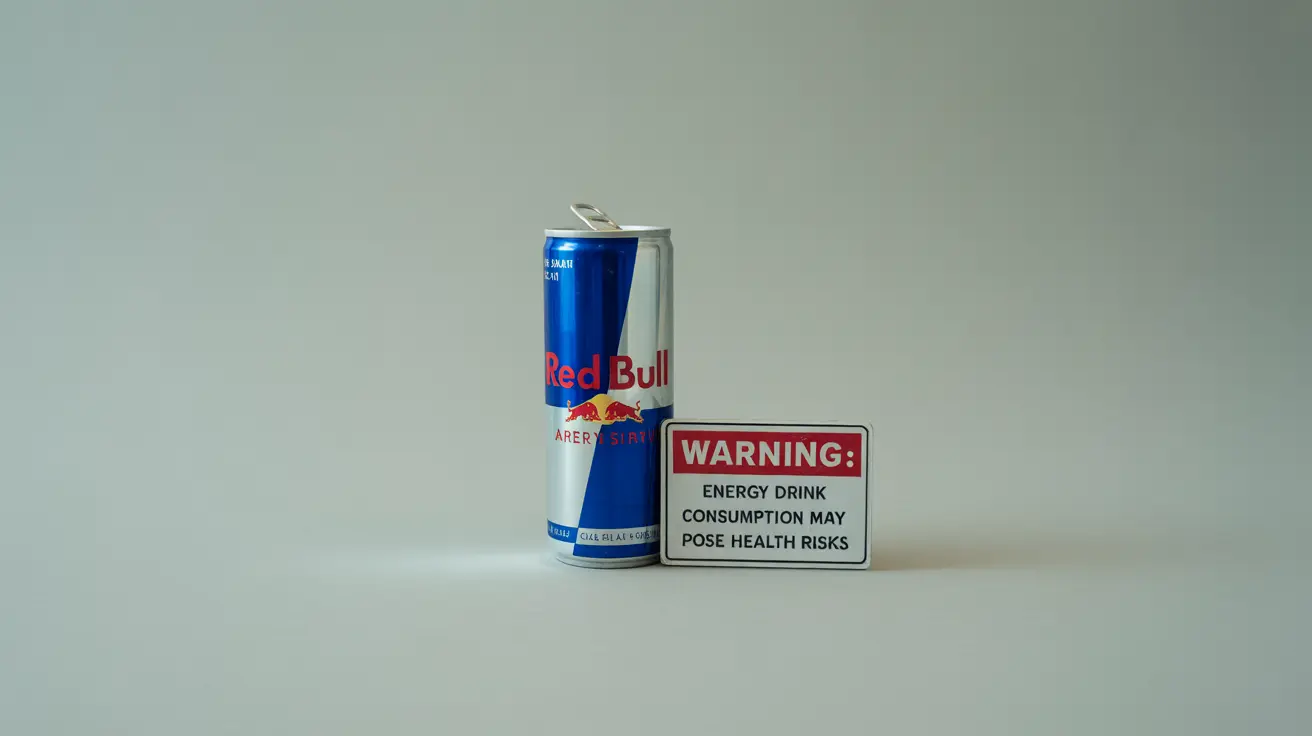Energy drinks like Red Bull have become increasingly popular, but concerns about their potential health impacts continue to grow. Understanding the effects these beverages can have on your body is crucial for making informed decisions about consumption. Let's explore the scientific evidence behind Red Bull's impact on health and examine why medical professionals often caution against regular consumption.
Understanding Red Bull's Key Ingredients
Red Bull contains several active ingredients that can affect your health, including caffeine, taurine, B-vitamins, and high amounts of sugar. While these ingredients individually have various roles in the body, their combination and concentrated amounts in energy drinks warrant careful consideration.
Caffeine Content and Its Effects
A standard 8.4 oz can of Red Bull contains 80mg of caffeine. While this is less than a typical cup of coffee, the rapid consumption method and additional stimulants can intensify its effects. Regular consumption can lead to caffeine dependency and impact sleep patterns.
Cardiovascular Health Concerns
The combination of caffeine and other stimulants in Red Bull can significantly impact heart health. These effects include temporary increases in blood pressure and heart rate, which may be particularly concerning for individuals with pre-existing cardiovascular conditions.
Blood Pressure Impact
Studies have shown that energy drink consumption can lead to notable increases in blood pressure, lasting several hours after consumption. This effect is particularly pronounced in people who don't regularly consume caffeine.
Mental Health and Cognitive Effects
Regular Red Bull consumption can affect mental health and cognitive function in various ways. While it may temporarily boost alertness, it can also lead to:
- Increased anxiety and jitteriness
- Sleep disturbances
- Mood fluctuations
- Difficulty concentrating when the effects wear off
Blood Sugar and Metabolic Impact
One significant concern with Red Bull is its high sugar content. A single can contains 27 grams of sugar, which can:
- Cause rapid blood sugar spikes and crashes
- Contribute to weight gain
- Increase risk of type 2 diabetes
- Lead to dental problems
Safer Consumption Guidelines
If you choose to consume Red Bull, consider these safety measures:
- Limit consumption to occasional use
- Avoid mixing with alcohol
- Don't consume late in the day
- Stay hydrated with water
- Consider sugar-free alternatives if necessary
Frequently Asked Questions
What are the potential health risks of regularly consuming Red Bull energy drinks?
Regular Red Bull consumption can lead to caffeine dependency, increased blood pressure, sleep disturbances, dental problems, and weight gain due to high sugar content. Long-term use may also contribute to cardiovascular issues and metabolic disruptions.
How does the caffeine content in Red Bull affect blood pressure and heart health?
The caffeine in Red Bull can cause temporary spikes in blood pressure and heart rate. These effects can last several hours and may be more pronounced in those who don't regularly consume caffeine or have underlying heart conditions.
Can Red Bull cause anxiety or other mental health issues?
Yes, Red Bull can trigger or worsen anxiety symptoms due to its stimulant properties. Regular consumption may lead to increased nervousness, jitteriness, and mood fluctuations, particularly in sensitive individuals.
Is it safe for people with diabetes to drink Red Bull?
Red Bull is generally not recommended for people with diabetes due to its high sugar content. While sugar-free versions exist, the caffeine content can still affect blood sugar levels, so consultation with a healthcare provider is advised.
How can I reduce the health risks associated with frequent Red Bull consumption?
To reduce health risks, limit consumption to occasional use, never mix with alcohol, stay well-hydrated, avoid drinking late in the day, and consider switching to healthier alternatives like green tea for energy boosts. If you consume Red Bull regularly, gradually reducing intake can help minimize withdrawal symptoms.




